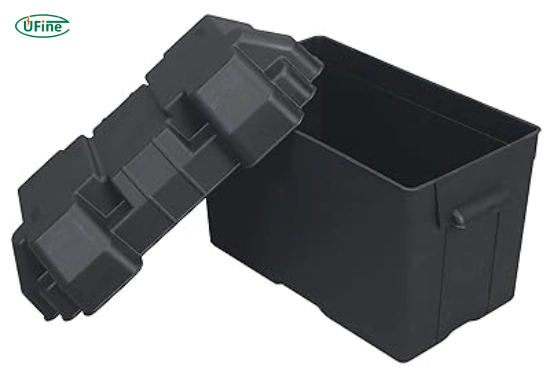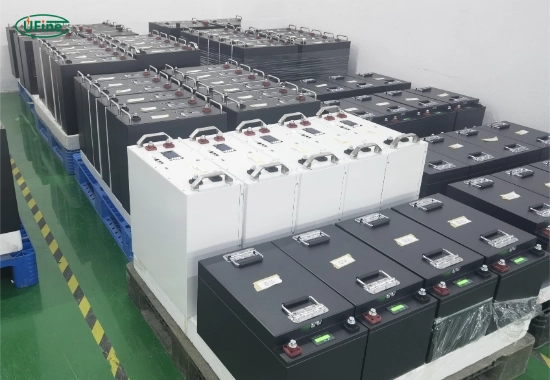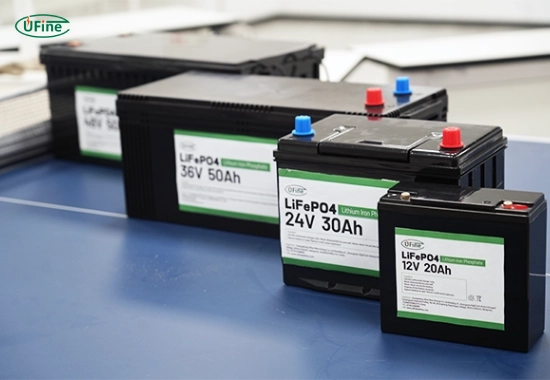
- Part 1. What is a lithium battery box?
- Part 2. Why choose lithium battery boxes over traditional options?
- Part 3. Key factors to consider when choosing a lithium battery box
- Part 4. Common uses for lithium battery boxes
- Part 5. Popular lithium battery box brands to consider
- Part 6. How to maintain your lithium battery box?
- Part 7. Comparing lithium battery boxes to other battery solutions
- Part 8. FAQs
A reliable power source is essential in today’s fast-paced, tech-driven world. Whether camping in the wilderness, traveling in an RV or setting up a solar power system, a lithium battery box can provide the convenience and efficiency you need to power your devices. These versatile power solutions are lightweight, durable, and packed with features to meet different energy demands.
But with so many options on the market, how do you choose the right one? In this guide, we’ll walk you through the essential factors to consider, the benefits of lithium battery boxes, and how to select the perfect option for your needs. Let’s dive in!
Part 1. What is a lithium battery box?
A lithium battery box is a portable enclosure designed to house and protect lithium-based batteries while offering features like USB ports, power outlets, and charging indicators. These boxes store and manage energy for powering devices such as phones, laptops, refrigerators, etc.
People widely use lithium battery boxes in outdoor activities, RVs, boats, solar systems, and emergency backups. Their lightweight and efficient design makes them the go-to solution for modern energy storage needs.
Part 2. Why choose lithium battery boxes over traditional options?
Lithium battery boxes stand out for several reasons compared to traditional lead-acid setups. Here’s why they are often the preferred choice:
- Lightweight and portable: Lithium batteries are much lighter than their lead-acid counterparts, making them easier to transport.
- Longer lifespan: With proper care, lithium batteries can last up to 10 years, far outlasting traditional batteries.
- Higher energy efficiency: Lithium battery boxes provide consistent energy output without the performance dips in older technologies.
- Fast charging: Lithium batteries charge more quickly, which is crucial for time-sensitive applications.
- Eco-friendly: Unlike lead-acid batteries, lithium batteries don’t contain harmful heavy metals, making them better for the environment.
Part 3. Key factors to consider when choosing a lithium battery box
1. Battery capacity
The capacity, measured in ampere-hours (Ah), determines how much energy the battery can store. Choose a capacity based on your energy requirements:
- Smaller devices like smartphones or LED lights may need a 20Ah box.
- Larger appliances like refrigerators or power tools may require 100Ah or more.
2. Portability and weight
- Portability is essential if you use the battery box for outdoor activities. Look for a lightweight, ergonomic design that’s easy to carry without sacrificing performance.
3. Built-in features
Modern lithium battery boxes come equipped with features like:
- USB ports for charging small devices.
- AC outlets for powering larger appliances.
- LCD screens for monitoring charge levels.
- Solar input compatibility for eco-friendly energy replenishment.
4. Durability and build quality
- You should make a high-quality lithium battery box from durable materials that can withstand harsh conditions like water, dust, and temperature extremes, especially if you plan to use it outdoors.
5. Safety features
Safety is paramount when dealing with high-capacity batteries. Look for features such as:
- Overcharge and over-discharge protection.
- Short-circuit prevention.
- Temperature monitoring to prevent overheating.
Difference Between Battery Case and Battery Casing
Part 4. Common uses for lithium battery boxes
Lithium battery boxes are versatile and can be used for a variety of purposes:
- Camping and outdoor activities: Power your lights, fans, portable fridges, and other camping gear.
- RV and boat trips: Ensure a steady power supply for your appliances on the road or at sea.
- Solar power systems: Store solar energy for later use in an eco-friendly manner.
- Emergency backup: Be prepared for power outages with a reliable backup solution.
- Professional tools and equipment: Power heavy-duty tools or devices on job sites.
Part 5. Popular lithium battery box brands to consider
When selecting a lithium battery box, choosing a reputable brand ensures reliability and quality. Here are some well-regarded options:
- Ufine Battery: Ufine offers OEM and ODM services, making it an excellent choice for businesses or individuals looking for customizable lithium battery boxes that meet specific requirements.
- Renogy: Known for its durable, solar-compatible battery boxes, ideal for outdoor and off-grid applications.
- Jackery: Famous for portable power stations tailored for camping and travel.
- Battle Born Batteries: Offers lithium battery boxes for RV, marine, and off-grid lifestyles.
- Goal Zero: A trusted brand for outdoor enthusiasts seeking portable energy solutions.
- Ampere Time: Provides affordable and efficient options for various energy needs.
Part 6. How to maintain your lithium battery box?
Proper maintenance can extend the life and performance of your lithium battery box. Here are some essential tips:
- Charge responsibly: Avoid overcharging or completely discharging the battery. Keep it within the recommended charge range.
- Store in a safe environment: Store the box in a cool, dry place to prevent damage from temperature extremes or moisture.
- Inspect regularly: Check for visible damage, wear, or loose connections.
- Clean the terminals: Prevent corrosion by gently cleaning the terminals with a dry cloth.
- Use compatible solar panels: If charging with solar power, ensure the panels match the box’s input specifications.
Part 7. Comparing lithium battery boxes to other battery solutions
When compared to traditional lead-acid batteries, lithium battery boxes offer significant advantages:
Lithium Battery Boxes:
- Lightweight and portable.
- Long lifespan (up to 10 years).
- High energy efficiency with consistent output.
- Faster charging times.
Lead-Acid Batteries:
- Heavier and bulkier.
- Shorter lifespan (3-5 years).
- Less efficient energy output.
- Slower charging times.
While lithium battery boxes have a higher upfront cost, their long-term benefits make them more cost-effective and reliable.
Part 8. FAQs
-
What is the lifespan of a lithium battery box?
A lithium battery box typically lasts 8-10 years, depending on how well it is maintained and how frequently it is used. -
Can I use a lithium battery box with solar panels?
Yes, most lithium battery boxes are compatible with solar panels. Ensure the box has a solar input port and the panels match the required voltage and wattage. -
Are lithium battery boxes safe to use?
Absolutely. High-quality lithium battery boxes have built-in safety features, such as overcharge protection, short-circuit prevention, and temperature monitoring, to ensure safe operation. -
What devices can I power with a lithium battery box?
Depending on the box’s capacity, you can power various devices, including smartphones, laptops, camping lights, fans, portable fridges, and even small appliances. -
How do I choose the right size lithium battery box?
Evaluate your energy needs based on the devices you plan to power. Smaller capacities like 20Ah are suitable for light use, while larger capacities like 100Ah or higher are better for energy-intensive applications.
Related Tags:
More Articles

Battery Load Test: A Comprehensive Guide
Step-by-step battery load test guide for car, solar & industrial use. Learn how to load test a battery, interpret voltage charts, and avoid common mistakes.
The Comprehensive Guide to Battery Balancing and Battery Balancer
Discover how battery balancers improve lithium battery performance, lifespan, and safety. Learn types, functions, and tips to choose the right balancer.
What Is the Best Voltage for a Chainsaw Battery?
Compare 12V-80V chainsaw batteries for light pruning, medium firewood, and professional cutting. See best battery chainsaw with runtime charts and safety tips.
Lithium VS. Alkaline Batteries: A Comprehensive Comparison
Lithium batteries last 3–7× longer than alkaline and perform better in cold weather. Compare lifespan, cost, safety, and best uses to choose the right battery.
Comparing Lithium-Sulfur and Lithium-Ion Batteries: Which is Right for You?
Compare lithium-sulfur (Li-S) and lithium-ion batteries on energy, lifespan, cost, safety, and applications. Best choice for drones, EVs, and electronics.





